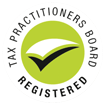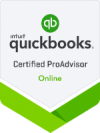Do I really need a business plan?
There is a school of thought among the entrepreneurial and multi-million Startup ‘community’ that these days you really don’t need a business plan.
While that might be true for some businesses, the more general view is that those called upon to back, invest or contribute to a new small business will want to see the plan behind the brilliant idea, before they are willing to give it more than a passing thought.
It’s also worth remembering, your business plan isn’t just the first thing that potential investors want to see, it is also a road map of your business and where you want it to go. As such, your business plan is a great tool to help keep your business on track, initially and in the future. Many businesses re-visit their business plans regularly, some just to re-iterate and refocus but many to develop it further as the business changes over time.
The story of a business 6 months, 2 years or 5 years down the track is often far different to how you envisaged it in the beginning.
So, the simple answer – for the time being at least – is YES! If you intend to start a business the FIRST thing to do is create a business plan. This doesn’t mean everything becomes etched in stone, it just means that the story of your proposed business has a good synopsis!
Knowledge (and research) is power!
Although a business plan should always have scope for further development, it should cover off all the main aspects of the business in its content.
First and foremost and before you even start writing, you’ll need to research your market and your competitors to establish where your business fits in the market. Are there people who want to buy your product or use your service? Who is competing for the attention of same people you wish to target, How do they operate, what do they charge, how do they market themselves, how successful are they? And most importantly, what are you going to do to give your business the edge over these competitors?
A business idea should be organic, it should evolve and develop with your ever growing knowledge of the field you are exploring. Your business plan should have scope to be the same.
Too much detail can distract you from the basic, core ideas that make a business happen. It should simply outline what your business will do, for whom, why, and how it will happen.
Where do you start with writing a business plan?
According to business mentor Dr Colin Benjamin, you should think about your business plan just as a chef thinks about a new menu:
A business plan “Has to have all the ingredients that the customers want and have what’s necessary to make the restaurant succeed as a business,”
“A good business plan is first and foremost a guide to doing what has to be done to make your venture work, then it is an aide to getting the support of others, but ultimately it is the path to the core job of any business – creating new customers and rewarding the investors.” “The right size is not a question of the number of pages or an excess of detail but how easy it is for the reviewer to see that you have been through a thorough planning process.”
At the very basic level, your business plan needs to explain what your business will do, how it will operate, what structure it will have, how it will be funded and when you expect to make a profit from it.
Creating a structure for your business plan
Below is a simple outline of a basic structure for a business plan. Every business is different therefore each one differs in order to explain each aspect of the proposed business.
Summary – 1 page overview (usually done last)
Let’s jump to the end, as that’s when you’ll do the first part of your plan.
A clear, short summary will help you to have clear conversations with other people about your business – including bankers and other key players. It will help you create a good sales pitch and clear promotional materials later on.
If your business plan can’t be summarised clearly on one page, something is seriously wrong.
A one-page summary can unite people in thought and action. A forty-page report can unite people for a lot more meetings.
Introduction – The business profile
- What is the business?
- What services or products will it provide?
- How will it be structured, how it will operate?
- Who will be on the management team?
- Who are your customers and suppliers?
Vision and/or mission statement
- What is your aim for the business?
- Write a very short and concise explanation of what will make your business great!
Customers
- Who are your targeted customers and what do they want?
- How many are there?
- How will your business fit their needs?
- Who are your competitors?
- What edge will your business have over them?
Feasibility
- How will your business generate cash flow and profit?
- How will you meet the expectations of investors?
- How will the business remain viable for the long term?
Timeframes and goals
- What is your time frame for completing planning and commencing the business?
- What are your goals for the business re: growth and profit time frames?
Production equipment, vehicles etc.
- What equipment, machinery, vehicles, computer systems/software will you need?
- How will you acquire these – or the use of them – if you don’t already have them?
Marketing strategy
- How will you market the business initially?
- How will you gain and retain customers long term?
Funding and investment
- How will you fund the business start-up and initial costs?
- What external investment do you need?
- Why does your business present a good opportunity for an investor?
Feedback
Once you have your business plan drafted, ask friends family and other business associates to read it and ask for honest feedback. If they have questions or see pitfalls, then investors or contributors will too.
It’s likely that you will need to re-work your business plan a few times before it’s ready for presenting. So be prepared to spend as much time as necessary to on it. Remember, you only get one chance to present it!
Getting help with your business plan
It’s highly recommended that you talk to your accountant about your business plan. They will make sure you are keeping everything in perspective and will challenge your assumptions and figures where necessary. In addition they will advise on the right structure for your business to ensure its potential for ongoing success.
 Tax Agent
Tax Agent



